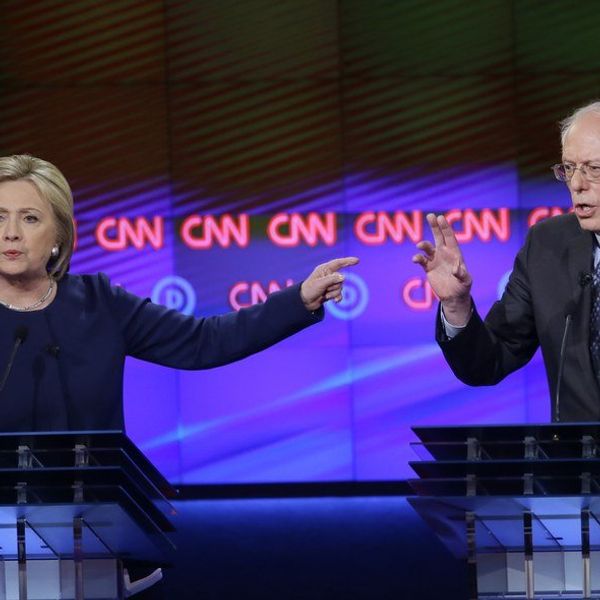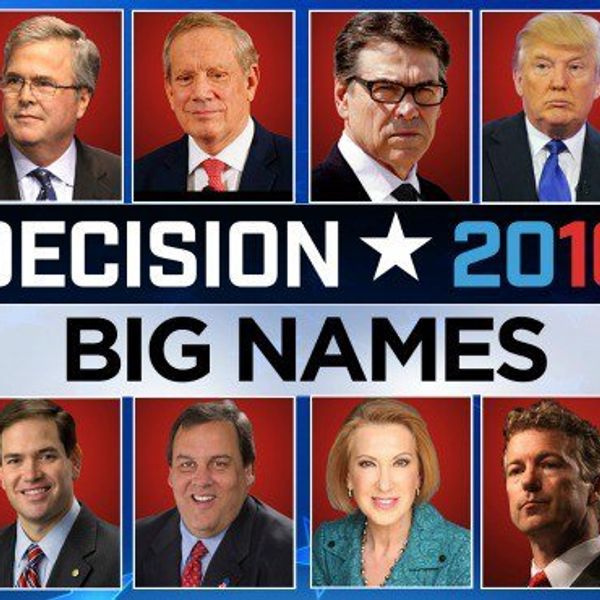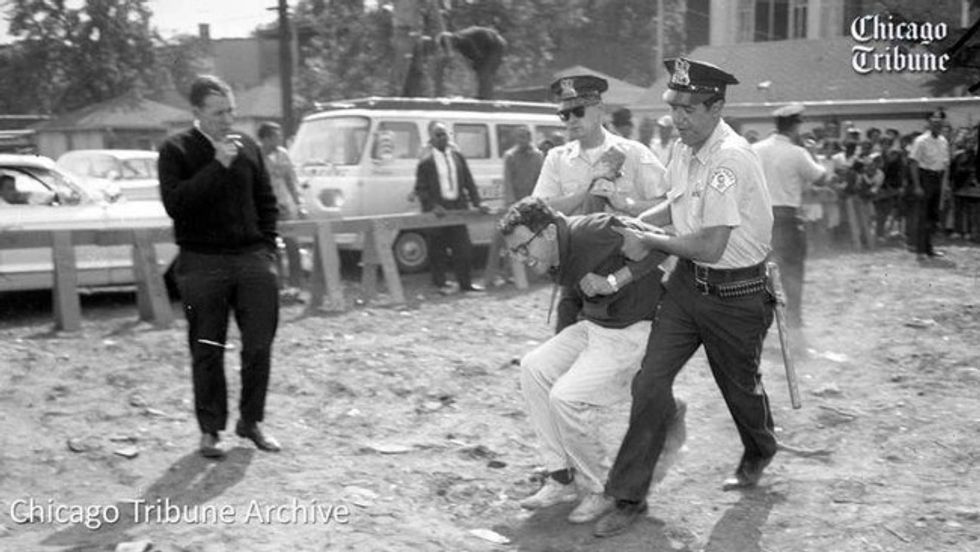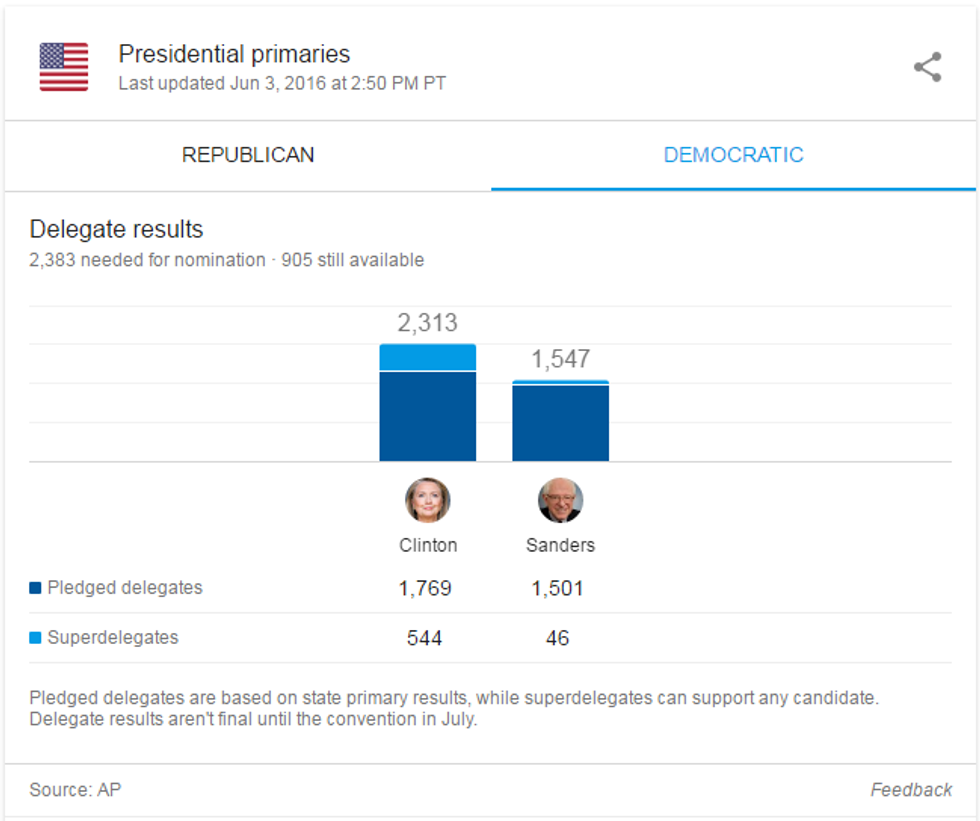In recent weeks, I've seen a flood of memes circulating Facebook that bemoan the idea of having to decide between Hillary Clinton and Donald Trump in November's general election; an election that many have already characterized as the choice between two evils. What if I told you there was a better choice? What if I told you that there existed a candidate who believed in wealth and social equality, affordable education, affordable healthcare, eradicating corporate money from politics, creating jobs and combating climate change? That candidate doesn't sound so bad, does he?
Bernie Sanders stands proudly upon this platform and has been shouting from the rooftops for the past 50 years about the same pressing issues. In a political climate where half of our candidates pander to the local demographic and the other half makes up their mind about potential legislative actions in the heat of the moment, Sanders has proven himself to be well-read and steadfast on his policies. However, many political pundits, analysts and citizens have written off Sanders' hopes of winning the presidency as a pipe dream. Bernie Sanders' entire life has been filled with what many might have called pipe dreams decades ago. When he marched with Martin Luther King Jr. in 1963, not many could have imagined a black man presiding over the White House just 45 years later. Sanders and other like-minded individuals had the foresight and compassion to fight for a cause that many people failed to understand or agree with.
Now, much like then, he faces an uphill battle against Republicans, a Democratic party that some say have stacked the deck against him and the perception of those who can't distinguish a communist from a democratic socialist, as Sanders likes to call himself. He can't do this alone. Now, much like then, he is part of a movement steadily sweeping across America like wildfire and many of us are "feeling the Bern."
What's most frustrating is the idea that Sanders has already lost the democratic nomination to Hillary Clinton. Just over two weeks ago, in a conversation with CNN, Clinton asserted that the race was over.
“I will be the nominee for my party. … That is already done, in effect. There is no way I won’t be." -Hillary Clinton
What Clinton fails to realize is that this race is far from over. Let's crunch numbers. As of June 3, Hillary Clinton boasts 1769 delegates to Sanders' 1501, excluding superdelegates (more on that in a bit). That's a difference of 268 delegates with 905 that have yet to be allocated. Side note: Remember these numbers for me. How then is it that Clinton could declare herself the democratic nominee? It's likely because of the misleading delegate counts that many mainstream media outlets have continued to publish over the past few months. These counts include delegates and superdelegates, but they fail to mention what superdelegates are or the fact that they can switch their allegiance at any point leading up to the Democratic National Convention in July.
Superdelegates are a group of 712 individuals who will cast their vote at the DNC in July and throw their weight behind the candidate they feel is best suited to take on the Republican nominee in the general election. 544 of these individuals have already pledged their allegiance to Clinton, many of whom did so long before Sanders' rise to the national spotlight. In contrast, only 46 superdelegates have declared that they will be voting for Bernie Sanders. Many superdelegates voting for Clinton have longstanding ties with both her and her husband, former President Bill Clinton. Sanders, who has long-identified as an independent with progressive values faces the challenge of appealing to superdelegates who only see him as the candidate who joined the Democratic Party last year to appeal to a wider demographic. True as that may be, Sanders and the Democratic Party still share many of the same values and it would be in the party's best interest to promote unity and fairness throughout this election process.
Let's get back to those numbers we were crunching earlier. This time, we'll factor in those superdelegates as well. Hillary Clinton commands a total of 2313 pledged delegates and superdelegates. At this point, Sanders' pales in comparison with a total of 1547. 2383 delegates are need to clinch the nomination and send Clinton into a heated battle with Donald Trump, the Republican nominee. With mainstream media outlets pushing the kind of misinformation that places Hillary Clinton only 70 delegates away from the nomination, it's not hard to believe that many young voters who had previously planned on supporting Sanders might be discouraged from doing so and they may even refrain from participating in the process at all.
There has been a growing frustration on the part of many of Sanders' supporters that stems from DNC chairperson Debbie Wasserman Schultz's connections with Hillary Clinton. Wasserman Schultz was the co-chair for Clinton's campaign in 2008 and has very obviously favored her throughout these primaries and caucuses, leading many to believe that the fix is in and Clinton would be named the nominee no matter what. Sanders' campaign and its supporters have blasted the DNC chair for what they believe to be unfair treatment. An article by US Uncut details just a handful of ways in which Wasserman Schultz has gamed the system to help her ally, Hillary Clinton, including the strategic scheduling of debates to give Sanders little coverage, the DNC's finance chair raising money for Clinton and allowing Clinton campaign offices to set up at DNC offices.
Despite all of this, Sanders has the potential to make the race to the democratic nomination much more interesting on June 7 if he's able to substantially close the gap between he and presumptive nominee Clinton with wins in New Jersey and especially, California. The latter of which has long been sought after by the Sanders campaign as a game-changer, with 548 delegates in the state alone. Sanders certainly has the momentum and support to push this race to a contested convention in July where all bets are off and he may very well accomplish what many have called impossible for so long. The Sanders campaign very well knows this and has initiated a strong marketing push in recent days.
If superdelegates are indeed meant to choose the democratic candidate best suited to win the White House in November, they'd do well to take a good look at the Jewish, democratic socialist, unorthodox, anti-establishment candidate who seems to have the best chance of defeating Donald Trump in the general election. When looking at recent polls, Clinton holds a 42% to 40% edge over Trump nationally, as opposed to Sanders' 48% to 39% advantage.
All of this considered, Bernie Sanders still has quite a way to go to earn the democratic nomination and a battle with Trump for the presidency. Considering the lengths to which the DNC has gone to derail Sanders' campaign, it's a safe bet that Clinton will come out on top of this dogfight. However, Sanders' supporters should take comfort in the fact that he's planted the seeds for a political revolution the likes of which our generation has never seen. Win or lose, it's important that we carry this momentum with us beyond the 2016 election and continue to push for all the things that Bernie believes in. The government works for the people, not corporations and not Wall Street, and they've seemed to have forgotten that in recent decades.
It's our responsibility to carry the torch the Bernie Sanders ignited into the future and light the way for generations to come. Sanders' entire career has come down to the June 7 primaries, but his legacy has the potential to live on long afterward. Bernie hasn't given up on us and that's why I refuse to give up on him. Throughout the 2016 election and beyond, I'm #StillSanders.























